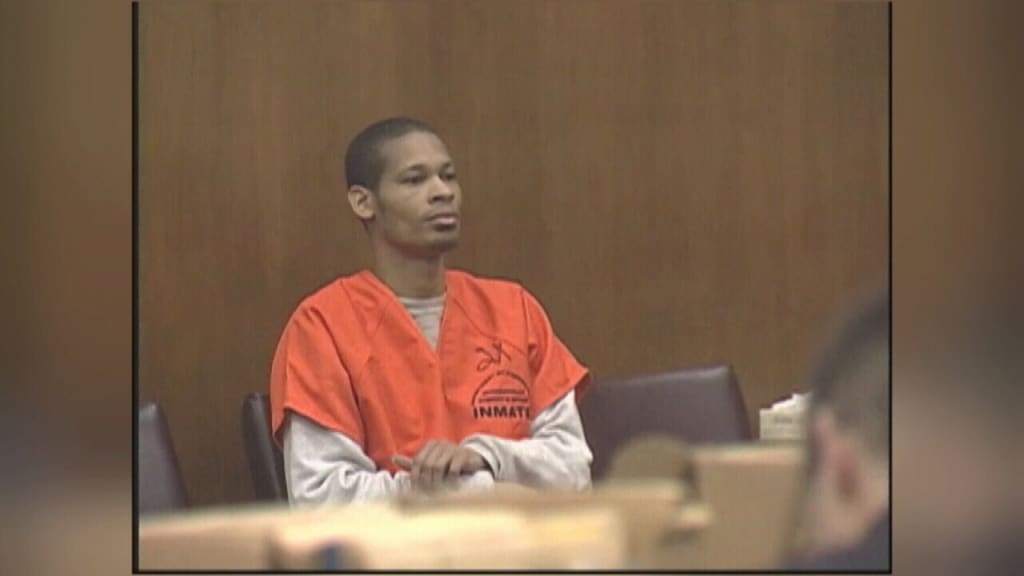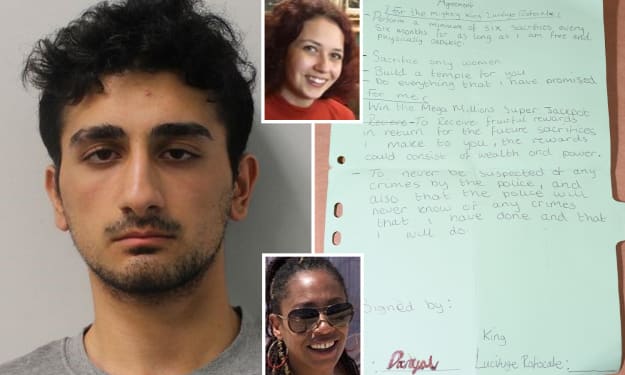The Serial Killer Taxi Driver: The Chilling Case of Paul Durousseau
How a Jacksonville Taxi Driver Became One of America's Most Notorious Serial Killers

In Jacksonville, Florida, a series of brutal murders in the early 2000s left the community in shock and fear. The perpetrator, a seemingly ordinary taxi driver named Paul Durousseau, turned out to be one of the most dangerous serial killers in recent history. This article delves into the harrowing details of his crimes, the investigation that led to his capture, and the enduring impact on the victims' families and the community.
The Disappearance of Nikia Chanel Kilpatrick
Nikia Chanel Kilpatrick was a 19-year-old single mother living in Jacksonville, Florida. On January 1, 2003, her family became alarmed when they hadn't heard from her. Nikia was known for staying in regular contact with her family, making it unusual for her to go silent, especially on New Year's Day. Concerned, her parents decided to visit her home that evening.
Upon arriving at her house, they noticed an eerie silence. The lights were off, and there was no sign of movement. They knocked on the door and windows, but there was no response. Nikia's neighbor, who was also her best friend, joined the search. Together, they discovered Nikia's oldest child, a distressed toddler, banging on the living room window.
Looking through the gaps in the blinds, they saw that the apartment was in disarray. Realizing something was terribly wrong, they kicked in the door. The foul smell that greeted them confirmed their worst fears. Nikia's body was found in the hallway, bound and strangled with a telephone cord. Her two young children had been left alone with their mother's decomposing body for days.
The Initial Investigation
The police began their investigation at the crime scene, which was a mess, particularly the kitchen where food was scattered everywhere. It became apparent that Nikia's children had been trying to feed themselves. The lack of forced entry suggested that Nikia might have known her attacker, or the attacker had stolen her house key. However, no substantial evidence was left behind, except for a semen sample collected during the autopsy, which did not match any records in the national database.
A Second Murder
A week into the investigation, another young woman, Shawanda Denise McAllister, was found murdered in her apartment, less than a mile from Nikia's home. Shawanda was discovered by her boyfriend, Rasheed, who had broken into the apartment after hearing loud music and a man's voice. Shawanda's body was found strangled with a cord, her wrists and ankles bound, and evidence of rape. She was also pregnant at the time of her murder.
Connecting the Cases
The similarities between the two murders led police to believe they were dealing with the same perpetrator. Both victims were young black women, found bound, strangled, and raped. The specific type of slipknot used in both murders further confirmed the connection. DNA evidence from both crime scenes matched, pointing to a single suspect.
The Breakthrough: Tracking the Taxi
Witnesses reported seeing Shawanda getting in and out of taxis on the day of her murder. One neighbor mentioned seeing a man leaving Shawanda's apartment and getting into a taxi. This led the police to investigate local taxi companies, eventually focusing on Gator City Taxis.
Among the drivers was Paul Durousseau, who had started working for the company the same day Shawanda was murdered. Further investigation revealed that Durousseau had a history of violent behavior and a troubling past.
Paul Durousseau's Troubled Past
Paul Durousseau was born on August 11, 1970, in Texas. Raised by a single mother, he had a turbulent childhood, moving frequently and lacking stability. At 18, he began working as a security guard but soon turned to crime out of boredom. He was arrested multiple times for carrying firearms but always managed to escape severe punishment.
Durousseau joined the army, seeking a fresh start, and was stationed in Germany. While there, he met and married Natoca Spann, with whom he had two daughters. However, his criminal behavior escalated, leading to a dishonorable discharge after being suspected of kidnapping and raping a young girl in 1997.
After his discharge, Durousseau moved to Jacksonville with his family. His criminal activities continued, including robbery, burglary, and domestic violence. His marriage deteriorated, and his wife eventually left him, taking their children.
The Investigation Heats Up
With Durousseau as their prime suspect, the police began gathering evidence. Phone records showed that both victims were in the same location as Durousseau on the nights of their murders. The specific slipknot used to bind the victims was taught in the army, linking him further to the crimes.
Police found blue fibers in the trunk of Durousseau's car, matching the blanket Nicole Williams was wrapped in when her body was found. Surveillance footage from an ATM confirmed Shawanda had been picked up by a Gator City Taxi shortly before her murder.
More Victims Emerge
As the investigation continued, police linked Durousseau to additional murders. In 1997, while stationed in Georgia, he raped and murdered 26-year-old Tracy Habersham. DNA evidence confirmed his involvement. In 1999, he killed 24-year-old Tyresa Mack in her Jacksonville apartment, leaving behind similar evidence.
By the time of his arrest in 2003, Durousseau was linked to at least seven murders, including the unborn children of his victims. His killing spree lasted just over a month, during which he brutally ended the lives of young women and their unborn babies.
The Trial and Aftermath
In June 2003, Paul Durousseau was charged with five counts of murder and two counts of child abuse. Despite the overwhelming evidence, he was only tried for the murder of Tyresa Mack, possibly due to the complexity of proving non-consensual sex in court. The jury heard about his other crimes as part of the case.
Durousseau was found guilty and sentenced to death by lethal injection. However, his death sentence was overturned in 2007, and he was sentenced to life in prison without the possibility of parole.
Legacy and Impact
The case of Paul Durousseau had a profound impact on the Jacksonville community and beyond. The brutal nature of his crimes and the failure of the system to stop him earlier highlighted significant flaws in law enforcement and the justice system.
In the aftermath, the families of Durousseau's victims filed lawsuits against Gator City Taxis for failing to conduct thorough background checks. The company soon shut down, unable to recover from the scandal.
Conclusion
Paul Durousseau's story is a chilling reminder of the darkness that can lurk behind a seemingly ordinary facade. His horrific crimes left a trail of devastation and highlighted the importance of vigilance and thorough investigations. The legacy of his victims endures, a stark reminder of the need for justice and the ongoing fight against violence.
About the Creator
Sally A
Animal lover 🐾 | Health enthusiast 💪 | Self-development junkie 🌱 | Beauty explorer 💄 | True crimes & mystery enthusiast 🕵️♀️ | Let's journey together! 💫
Enjoyed the story? Support the Creator.
Subscribe for free to receive all their stories in your feed. You could also become a paid subscriber, letting them know you appreciate their work.






Comments
There are no comments for this story
Be the first to respond and start the conversation.